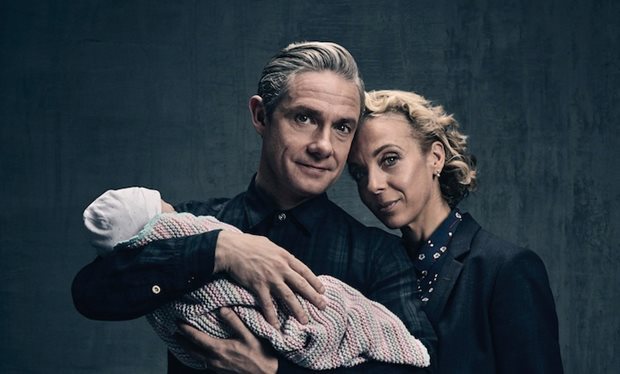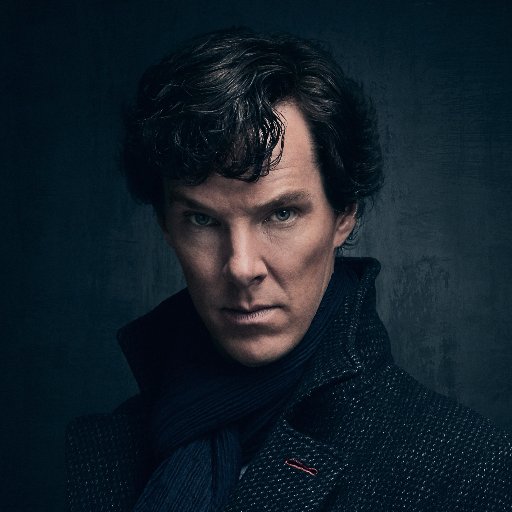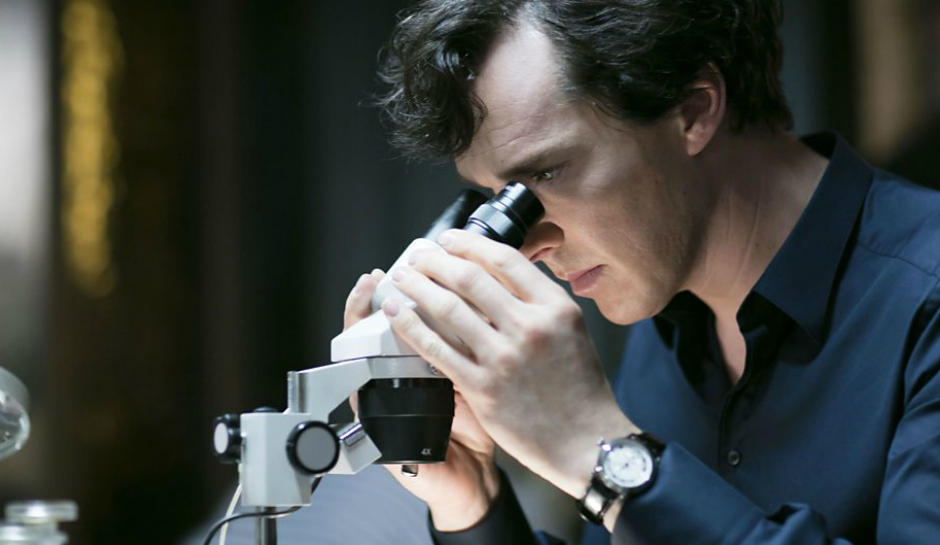Sherlock Review: The Six Thatchers
WARNING: THE FOLLOWING REVIEW CONTAINS MAJOR SPOILERS FOR “THE SIX THATCHERS.”

You can listen to our podcast reaction episode below.
One year from “The Abominable Bride.” Nearly three from the last regular-season-order episode “His Last Vow.” The combination of seemingly-interminable hiatus, international build, and a fandom given to painstaking analysis means that “The Six Thatchers” came onto screens less like a single episode of a mystery series and more like the receptacle of the collective weight of metric tons of expectations.
The question is: Did it deliver?
The answer is a complicated yes and no and maybe. I’ll delve into all three, in an effort to make a complicated episode (and the complicated opinions of members of our podcast) into something coherent.
First of all, what delivered? Without a doubt, the core cast of Sherlock is one of the finest in the business and perhaps one of the best ensembles that has ever graced television screens. With his usual sharp precision, Benedict Cumberbatch settled into the role of a Sherlock Holmes who is on edge but still completely recognizable as the established character. His rapid-fire deductions during the case montage were as entertaining as ever, and his smugness when he tracked Mary’s location and confronted her was a wonderful cheeky moment. Even more enthralling, in my opinion, were his razor-edge interactions with Mark Gatiss’s phenomenal interpretation of Mycroft, one of the only characters who is consistently able to unsettle our hero and bring his vulnerable side forward. Rupert Graves’s Lestrade, Louise Brealey’s Molly, and Una Stubbs’s Mrs. Hudson were all on point, though not extremely prominent in this episode. (We hope for more of them in the coming weeks.)
When all is said and done, though, the acting plaudits for this episode belong most of all to Amanda Abbington and Martin Freeman. Freeman’s Watson is, as always, a multi-layered man with a seemingly-simple facade that overlays a world of emotion and passion. The final scenes, of course, have pulled a great deal of focus from the rest of the episode, but Freeman plays the earlier scenes of the quiet desperation of a new father losing touch with his wife and experiencing the temptation of another woman with piercing vulnerability. He’s an actor who never settles for the comfortable version, and he forcibly compels the audience to feel his internal conflicts. Abbington, in her swan song on the show, plays a Mary whose past has finally caught up with her. We watch her, like a hunted animal, run from the inescapable, and she’s mesmerizing on screen. Even in scenes that, as plot points, I didn’t care for, I found her screen presence enthralling. Her Mary is by turns brittle, sweet, funny, and finally desperate. In the end, she made me care. As Babe Ashley Polasek says in our reaction episode, even though she didn’t particularly enjoy how the episode arrived at it, Mary’s death made her cry. It was just that well-played. The chemistry between Freeman and Abbington as John and Mary wasn’t so much tender as brutal, and when they finally said goodbye, their pain mingled into something almost unbearable to watch in its intensity.
I’d also be remiss in not mentioning the wonderful direction of Rachel Talalay, new to Sherlock, but veteran of hits like Doctor Who and The Flash. Her deft hand brought atmosphere, style, and beauty to the episode and made some very complicated sequences work and retain visual coherence. “The Six Thatchers” has a gorgeously operatic quality, and the bold images of the aquarium, the stark simplicity of Mycroft’s office, and the richness of the foreign settings created a feast for the eyes.
Finally, the episode had many brilliant references to the Doyle Canon and the world of pastiche. Most prominently, the overarching plot was a very high concept take on The Sign of Four, in which the Agra treasure that should belong to Mary Morstan is lost at sea. As a part of AGRA herself, Sherlock‘s Mary meets her demise under water (in the London aquarium). Seen as a unit, “His Last Vow” and “The Six Thatchers” play out the story arc of the novel. Additionally, the concept of six busts of a historical figure being destroyed is a reference to “The Six Napoleons,” one of Doyle’s stories, which has the solution that Sherlock expects in the episode–the missing Black Pearl of the Borgias. When Mary takes her around-the-world jaunt, each disguise is a reference to a Canon case or disguise Holmes used. A more emotional reference is the use of “Norbury,” a name in the episode, but a place in Doyle’s story “The Yellow Face.” In both cases, Holmes makes an error in judgment, and the word “Norbury” comes to symbolize his own awareness of his tendency toward hubris. Of course, Mary’s death is Canonical as well; after the Great Hiatus, Watson mentions that he’s lost her, but he doesn’t specify how. Acclaimed pastiche author Nicholas Meyer also received a direct shout-out in the episode, through the title “The Canary Trainer,” one of his books. (The showrunners enjoy referencing Meyer; they referred to his most famous Sherlockian work, The Seven-Per-Cent Solution, in “The Abominable Bride.”)

Unfortunately, alongside these brilliant elements, other aspects of the episode didn’t quite work as I’d hoped. I could come at this from several angles, but since this review is already getting long, I’ll try to keep it concise. If you listen to our upcoming reaction podcast, you’ll hear that we had strong criticism of the plot of “The Six Thatchers” and of the implications of what it means for the future of the series.
First, taking the plot alone. It was meta. (I’m not even sure meta is a strong enough word for how self-referential it was). We in the Babes enjoy a bit of meta, and for the most part, we were big fans of “The Abominable Bride,” which was about as meta as you can get–or so we thought. The problem is, at least partially, a context issue. A one-off Christmas episode can take a mind-palace trip that shows us Victorian versions of our beloved characters and dissects their psychology. By placing them back in their original contexts it bought the collateral necessary to get away with it. That is most definitely not the context we find ourselves in with “The Six Thatchers.” We’re back in the “real world” with our modern heroes and their daily jobs and problems. But apart from very brief deductive montages, we didn’t have an episode of Sherlock Holmes being Sherlock Holmes, solving cases, being a detective. We were almost entirely in navel-gazing territory, where the characters’ problems were almost entirely created by themselves. At some point, if Holmes spends most of his time solving problems created by or primarily involving him (the ending of the ep) and his friends (most of the rest of it), there’s a curiously claustrophobic and inward feeling to the action. Even as it goes global, it feels small, smaller than it should.
This episode also asked viewers to accept the idea that John Watson, a character whose loyalty to his friends and loved ones has been his primary trait in the series thus far, is carrying on a late-night extramarital flirtation while his new baby cries in the next room. Three-Continents Watson might be flattered by a woman’s attention on a train; the man we know and love, however, would not let it go beyond that. He’s not perfect, but nothing in the series or the source material paints him as anything other than a faithful partner. I understand the plot’s reason for this–the fact that Watson’s anger at Holmes after Mary’s death is projected anger at himself. That’s possibly the biggest problem. It feels like John’s actions served the plot, rather than the other way around.
Finally, as enjoyable as it was to watch Mary traveling the world as different characters (and it was great fun), it was all a bit much. Sherlock has always had a heightened quality, but it’s anchored in reality. The international espionage elements of “The Six Thatchers” didn’t feel in any sense anchored in reality, and the previous episode it called to mind, in our opinion, was “The Blind Banker,” which also struggled with feeling a bit ridiculous for similar reasons. (Don’t get me wrong; as with this episode, there are aspects of “The Blind Banker” we greatly enjoy, but along with many fans, we consider it one of the weakest of the series.) This criticism has nothing to do with the stellar performances. In fact, if this is Amanda’s James Bond audition, we heartily support her being cast as the first International Woman of Mystery.
In a more general sense, we’re concerned about what this episode says about this show’s trajectory. Sherlock has always been a show about a detective, rather than a detective show; that’s a given. One of the main things that drew us in at the beginning was the side-by-side interplay of what we learn about the man through the mysteries he solves. Memorable moments like Watson yelling about Holmes’s lack of care, Holmes asking whether something is “not good,” and the heart-shattering moment of the Reichenbach Fall were all wonderfully poignant character moments, but those moments were earned by being integral parts of the mysteries the episodes and seasons presented. Once those mysteries fall away, the series becomes nothing but a very heightened show about the relationships between an extremely small group of people. “The Six Thatchers” was phenomenally acted, but in the end, the primary story wasn’t much of a mystery at all.
If we take Sherlock Holmes out of his time, that’s fine. If, as in TAB, we put him back in his time and change up the focus of his story, also fine. What concerns us most is this episode seemingly trying to do both–giving us the modern Holmes of most of Sherlock (obviously), but failing to give him back his primary function as a solver of mysteries. Additionally, by placing such a huge rift between Holmes and Watson, while taking Watson somewhat out of character, the show has also endangered the primary relationship of the source material, the core friendship between the detective and his doctor. Holmes alone is not the Holmes we know and love; he’s diminished. To be fully realized as a character, he needs his Boswell (or blogger).

Let’s finish up on the maybe question. We don’t know what’s coming in the rest of this series of Sherlock beyond general information, and it’s possible we may end up with a different view of “The Six Thatchers” by the end. The Moriarty question still looms over the show, and one of our criticisms in this episode was that it didn’t link Sherlock’s ongoing obsession with any tangible clues. We may find later, however, that it dropped clues we didn’t grasp. Also, if the resolution of the Holmes-Watson rift is strong enough, we may look back and find that the conflict was worth it, or at least less troubling. More than anything, if the next episodes return to tightly-plotted mystery with clues and deduction, we’ll be very grateful, because while we love the characters of Sherlock dearly, what we love most is learning about them while they do the work of solving mysteries in the world around them.
I’ve now seen “The Six Thatchers” three times, and I thoroughly enjoyed each viewing. Even when, in our opinion, Sherlock isn’t quite firing on all cylinders, it’s still very good television with excellent production values. Though not our favorite in terms of story, this season opener will live on in our minds for its beautiful visuals and stunning performances, and we will miss Amanda Abbington’s presence. Criticism aside, she made Mary vibrant and alive and wonderful, and we won’t forget her or what she added to the world of the show.
You can listen to our podcast reaction episode below or follow the link.

Amy Thomas is a book reviewer, freelance essayist, and author of The Detective and The Woman mystery novel series featuring Sherlock Holmes and Irene Adler, published by MX Publishing. She holds a degree in professional communication and is an avid knitter, geek, and grammar nerd. Amy blogs about Sherlock Holmes at Girlmeetssherlock.wordpress.